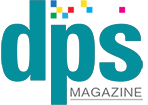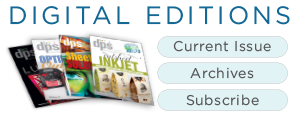8.3.16
Esko’s Automation Engine is finding its way into wide format shops that need to quickly manage and produce their short-run jobs. For Category 5 Imaging, Automation Engine has eliminated operator time particularly by eliminating the painstaking and repetitive task of placing one-up artwork onto print sheets.
Based in a 20,000 square foot facility in Burlington, Ontario, Canada, Category 5 was established in 2006 as Canada’s first fully digital, full service large format printer. The company’s emphasis on high quality reproduction, caring customer service and attractive pricing has helped them attract an ‘A list’ of Canada’s retailers, outdoor advertising companies, and advertising agencies. The company’s 30 employees operate a number of state-of-the-art Vutek digital presses and provide full service creative, prepress, fulfillment and shipping, all in house.
Category 5 was using the Adobe Creative Suite to prepare its projects, but found that the many repetitive tasks required to create layout patterns for outdoor, pillar, billboard, and subway signs forced them to produce the same type of jobs many times throughout the year. They wanted to find an automated software solution that would help them produce the graphics faster for same-sized materials, reducing prep time. They wanted to eliminate tasks that were done over and over again and reduce the associated error rates and production times. They also wanted a system that would integrate with their Kongsberg table.
“We really liked the versatility of Automation Engine,” says Dave LePoidevin, Prepress Technician, Category 5 Imaging. “It could customize the workflow in any way we wanted. Another workflow system we explored was more structured, basically telling us how to create our banners and signs. We wanted more flexibility when outputting artwork, and the freedom of deciding where we wanted to place registration dots for our Kongsberg table.”
The implementation went fairly smooth. “We bought our own, new system for the server. Everything—Automation Engine, i-cut Layout, and our previously purchased i-cut Preflight was installed so our workstations could be connected remotely,” remembers LePoidevin. “We had WebEx training for i-cut Layout, a component of the solution, which was pretty simple to learn.
Automation Engine, as you can imagine, was a bit more sophisticated. We had three days of in-house training. We created everything from scratch,” continues LePoidevin. “We built a few easy workflows and, as we got farther in, added more automated tasks for our specific needs. Our trainer helped us build workflows that had us just about up and running when training was complete. I made a few tweaks to the ones he built, and we were basically running a few days after that.”
Category 5 has been using Automation Engine in production since March. “For everything we have presets for sizing, Automation Engine will automatically prepare a press ready file. We created presets for how many ‘up’, and stepped out the one-ups into that layout, with all the marks we need for the Kongsberg table. I like that the more junior people in our production department can start using Automation Engine almost immediately,” comments LePoidevin. “They do not have to learn the ‘ins and outs’. They no longer have to worry about all of the template-based details. The process has been accelerated because our people are more productive right away. It leaves our staff the time to focus on the tougher tasks.”
As complicated as the system seemed to be, it is quite intuitive once you get going. There are so many little tickets and different directions that you can take it. There’s a trial and error learning process, which is due to its versatility,” says LePoidevin. “That said, we are very happy with Esko support. Whenever we send an email request, we get responses quickly. There is no problem getting access to their support people.”
Category 5’s setups are now automated rather than manually done in Illustrator. “We had a folder with what seemed to be 50 million templates,” winces LePoidevin. “Now we just press a button and the job is sent to Automation Engine, where i-cut Layout does its thing. We will still do some work manually in i-cut Layout for specialized projects, but even that is much faster and easier.”
“Those jobs that we produce over and over—and we receive a lot of them—would take 15-20 minutes each to manually process. It also required an experienced person, most of the day. When Dave built his new job templates, we were able to significantly reduce that time to about a minute per job,” explains Greg Priede, General Manager at Category 5 Imaging. “We are also able to use a very capable, but inexperienced intern for those jobs. She is able to process the jobs nonstop, where it took our higher level prepress operator a half to three-quarters of a day to produce. It also used to take 30-45 minutes to create mural panels manually. Now we do it in less than half the time. We are able to keep the presses running with template-based work, giving us time to prepare the more complicated retail jobs we get. We produced a job with 145 versions of a display for a retailer. Before Automation Engine and i-cut Layout, we had two options: either go to press immediately and waste full sheets of substrate for each display, or spend a day to create step & repeat layouts that were more efficient. Now our operators easily input the job, indicate the quantities of each piece, and the software does the rest, outputting efficient sheets for us and sending cutting instructions to the Kongsberg table.”
While everything until now has been focused on creating templates to automate all of Category 5’s step & repeat work, they are building more workflows for larger projects that will save time in the future. “Basically, we’ve simplified our workflow so anyone can check a few things and the workflow takes over, completing the job in a few minutes. Esko has done an excellent job accommodating our large format requirements,” concludes LePoidevin. “They helped us implement the speed and accuracy we were looking for.”



